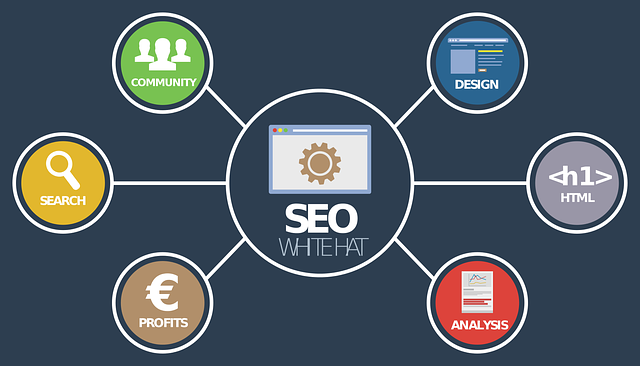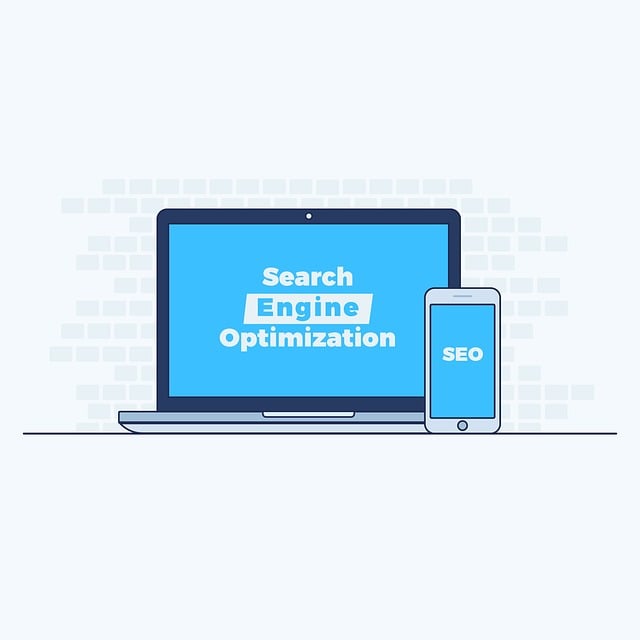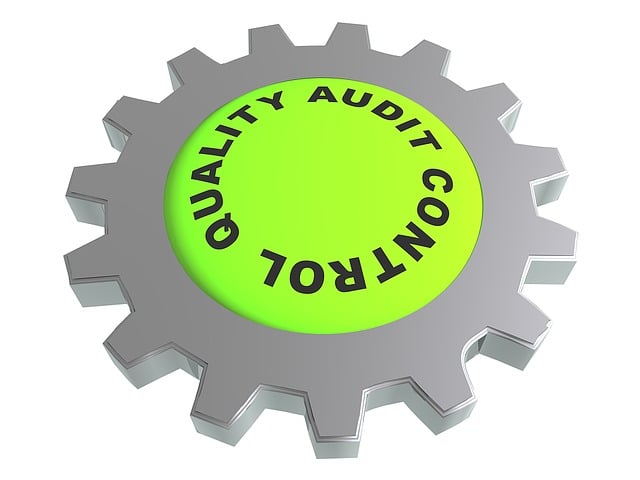Comprehensive SEO Audits are powerful tools for marketers to optimize website performance. They meticulously analyze various elements such as meta tags, headings, content quality, keyword usage, and user experience signals. By uncovering these areas, audits provide practical insights for improvement, including enhancing page titles, structuring content, speeding up load times, and ensuring mobile compatibility. Regular audits are crucial for seizing opportunities, maintaining search engine relevance, and driving organic traffic by improving online visibility and user satisfaction.
On-Page SEO Audits are crucial for optimizing your website’s visibility and performance in search engine results. This in-depth analysis involves scrutinizing various elements that directly impact your site’s ranking potential. In this article, we’ll guide you through the process of conducting a comprehensive audit, from understanding its fundamentals to implementing actionable strategies. Discover key components, including technical assessments, content optimization, user experience evaluation, and effective meta tag utilization. Learn why these audits are essential for driving organic traffic and enhancing your website’s overall health.
Understanding On-Page SEO Audits: A Deep Dive

On-Page SEO audits are a crucial aspect of comprehensive SEO strategies. They involve a deep dive into your website’s individual elements to ensure each page is optimized effectively for search engines. This process analyzes everything from technical aspects like meta tags and headings to content quality, keyword usage, and user experience signals.
By conducting thorough on-page audits, marketers can identify areas of improvement that may have been overlooked. These audits provide actionable insights into how to enhance page titles, optimize content structure, improve load speeds, and ensure mobile-friendliness—all factors that contribute to a better user experience and, consequently, improved search engine rankings.
Key Components of a Comprehensive Audit

A comprehensive on-page SEO audit involves meticulously evaluating every element of a website’s content and structure to ensure it aligns with best practices and search engine optimization guidelines. This process delves into several key components, including keyword research and optimization, meta tag analysis, content quality assessment, header and subheader usage, internal linking strategies, as well as mobile-friendliness and page speed testing. Each aspect plays a crucial role in improving search rankings and user experience.
Additionally, a thorough audit considers structural issues like XML sitemaps, robots.txt files, and URL structure, ensuring they are optimized for search engines to efficiently crawl and index pages. It also examines website architecture to identify any redundancy or broken links, which can negatively impact overall SEO performance. By addressing these components, businesses can enhance their online visibility, attract more organic traffic, and ultimately drive conversions.
Why Are On-Page SEO Audits Essential?

On-Page SEO audits are crucial for any website aiming to rank higher on search engines. They provide a comprehensive analysis of individual web pages, revealing areas of strength and weakness in terms of Search Engine Optimization (SEO). By evaluating factors like keyword optimization, meta tags, content quality, and technical aspects such as page loading speed, these audits offer an in-depth understanding of how well a page aligns with best SEO practices.
Regular on-page audits are essential for several reasons. They help identify low-hanging fruits that can significantly impact rankings, such as missing alt text or incorrect header structures. Moreover, they ensure content remains relevant and optimized for specific keywords, which is vital in the ever-evolving digital landscape where search engine algorithms continually update their criteria. Ultimately, these audits empower website owners to make data-driven decisions, enhance user experience, and ultimately drive better organic traffic.
Identifying Technical Issues with SEO Tools

Comprehensive SEO audits are an essential part of optimizing your website for search engines. When conducting these audits, it’s crucial to employ a suite of SEO tools that can identify both on-page and off-page issues. These tools are designed to uncover technical problems that may hinder your site’s visibility and ranking potential. By leveraging their capabilities, you gain valuable insights into the areas requiring attention.
One common challenge in SEO tool selection is navigating the vast array of options available. It’s important to choose tools that offer robust features for a thorough audit. This includes analyzing on-page elements like meta tags, headings, and content structure, as well as technical aspects such as site speed, mobile-friendliness, and schema markup. Ensuring these tools are aligned with your needs is key to identifying and rectifying issues efficiently during the comprehensive SEO audit process.
Optimizing Content for Both Users and Search Engines

Comprehensive SEO audits are an essential part of optimizing websites for both users and search engines. While search engine algorithms primarily focus on technical factors like site speed, mobile-friendliness, and backlink quality, content remains king. Creating valuable, relevant, and engaging content that meets user intent is crucial for capturing and retaining audience attention.
During a thorough audit, content specialists examine not only the quantity but also the quality of website content. They ensure keywords are strategically placed within headings, meta descriptions, and body text without appearing stuffed or overly optimized. Well-researched, informative content that answers common user queries can significantly improve search rankings while enhancing user satisfaction, leading to longer site visits and lower bounce rates—all vital metrics for any successful digital strategy.
Assessing Website Performance and User Experience

Comprehensive SEO audits go beyond basic keyword optimization and content analysis. They delve into assessing a website’s performance and user experience, which are pivotal for long-term success in search engine rankings. Tools within audit software can scrutinize technical aspects like page load speed, mobile responsiveness, and site architecture, identifying areas that hinder smooth navigation or slow down page loading, both of which negatively impact user satisfaction.
User experience (UX) is a key factor that search engines consider when ranking websites. A well-optimized UX encourages users to stay longer on the site, browse more pages, and interact with content. Comprehensive SEO audits evaluate this by assessing factors such as bounce rates, time spent on page, click-through rates, and user behavior patterns. By understanding these metrics, website owners can make data-driven decisions to enhance UX, ultimately driving better search engine rankings.
Utilizing Meta Tags Effectively

Comprehensive SEO audits often uncover the potential for improvement in utilizing meta tags effectively. Meta tags serve as crucial elements that search engines use to understand and index web pages, making them integral to any on-page SEO strategy. When conducted diligently, these audits reveal insights into how well your webpage’s metadata aligns with its content, helping you optimize visibility in search results.
Keywords play a pivotal role in meta tags, acting as powerful tools to attract the right audience. By integrating relevant keywords naturally into title tags and meta descriptions, you enhance the likelihood of your page ranking higher for targeted searches. This strategy ensures that your webpage appears more prominently on search engine result pages (SERPs), drawing in users who are genuinely interested in what you offer—a direct outcome of a well-executed on-page SEO audit.
Analyzing Keyword Usage and Ranking Potential

Comprehensive SEO audits often begin with a thorough analysis of keyword usage and potential ranking opportunities. By examining both on-page and off-page factors, SEO professionals can identify keywords that align with the website’s content and target audience. This involves researching search volume, competition levels, and user intent to determine high-value keywords with manageable competition.
Through advanced tools and manual analysis, experts assess how well a site ranks for these targeted keywords. They evaluate on-page elements like title tags, meta descriptions, header tags, and content relevance, ensuring they accurately reflect the page’s focus. By understanding the current ranking positions and identifying gaps, SEO strategists can create actionable plans to enhance keyword performance and drive organic traffic.
Creating an Actionable Plan Based on Audit Findings

After conducting a comprehensive SEO audit, the next crucial step is translating the findings into an actionable plan. This involves prioritizing the identified issues and opportunities based on their impact on search engine rankings and user experience. A well-structured action plan should include specific tasks, timelines, and responsible parties. For instance, if the audit reveals technical SEO problems like broken links or slow page loading times, setting a schedule to fix these issues becomes paramount.
Additionally, leveraging the insights from the audit to optimize content strategies, meta tags, headings, and keywords is essential. The plan should also incorporate methods for ongoing monitoring and measurement to track the success of implemented changes. By systematically addressing the recommendations, websites can effectively improve their on-page SEO performance, ultimately driving better organic search rankings and increased visibility.
